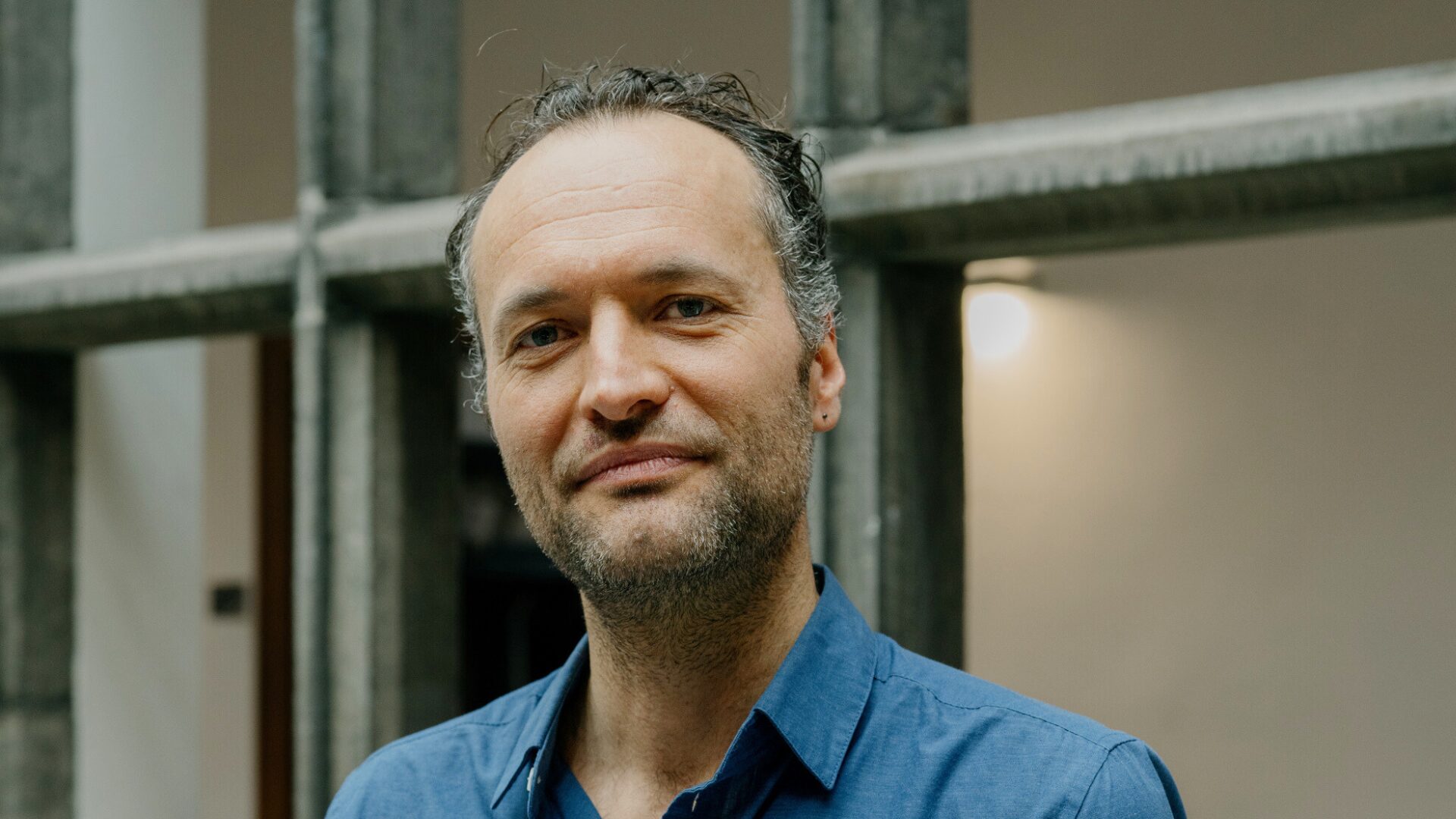Rather than just a safe space, Professor Gert Van Hecken from the Institute of Development Policy (IOB) aims to create a “brave space” in his classes. ‘The goal is to allow different perspectives to be voiced, even those that clash with what we typically take for granted.’ A conversation about active pluralism and how he translates this value into practice as a professor and lecturer.
How do you best address topics like racism and inequality in the classroom? According to Professor Gert Van Hecken from the Institute of Development Policy (IOB), the answer isn’t simply to talk about it himself. In the interdisciplinary course Debating Development, he prefers inviting speakers from the Black community to share their own insights, analyses and experiences. ‘All too often, it’s almost exclusively white professors who are presented as the experts. Sometimes, our role is to step aside and allow those directly involved to speak,’ he explains.
He wonders how much space our university provides for this approach. ‘If we truly want to listen to less frequently heard voices, the university itself needs to go further and support this structurally,’ he asserts. For him, active pluralism is a core value that must be applied in practice, both inside and outside the classroom. ‘Active pluralism means that, as a university, we actively bring together different values and perspectives,’ he says. ‘It means we are open to multiple ways of looking at the world. And in doing so it’s important that we dare to question the dominant values within our own society. The perspectives that shape our worldview are influenced by power dynamics within society and within our university. That’s why we must make space for opinions often sidelined as too ‘radical’ or incompatible with the dominant discourse of our society or university.’
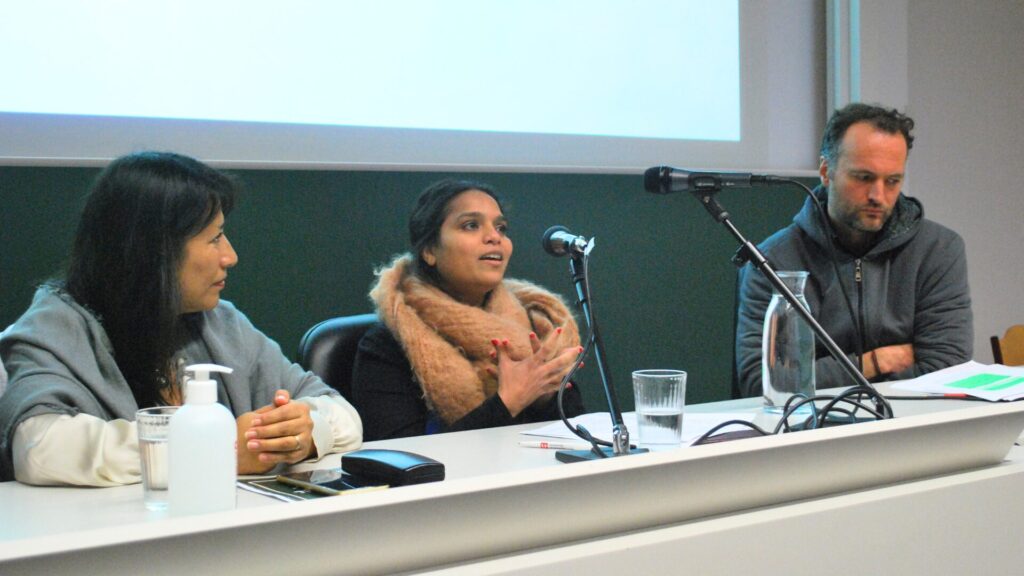
Uncomfortable questions
Van Hecken ensures that less conventional viewpoints have a place in his classes, ‘I invite speakers who present less commonly heard perspectives. Their voices often challenge the mainstream view.’ In his Debating Development course, for example, he discusses the university’s collaboration with the Port of Antwerp this year. ‘In doing so we dare to ask uncomfortable questions, such as about the ethical aspects of these partnerships. We invite union representatives to talk about forms of exploitation, environmental scientists and activists to discuss the port’s local and global ecological impacts. In this way, we aim to contribute to important societal debates.’
Is complete objectivity even possible? This is also an important question he explores with his students. ‘I encourage them to always question who is speaking. Through what lens do these people see things? What criteria do they bring to the debate? This critical approach is something I try to instil in them as a reflex.’
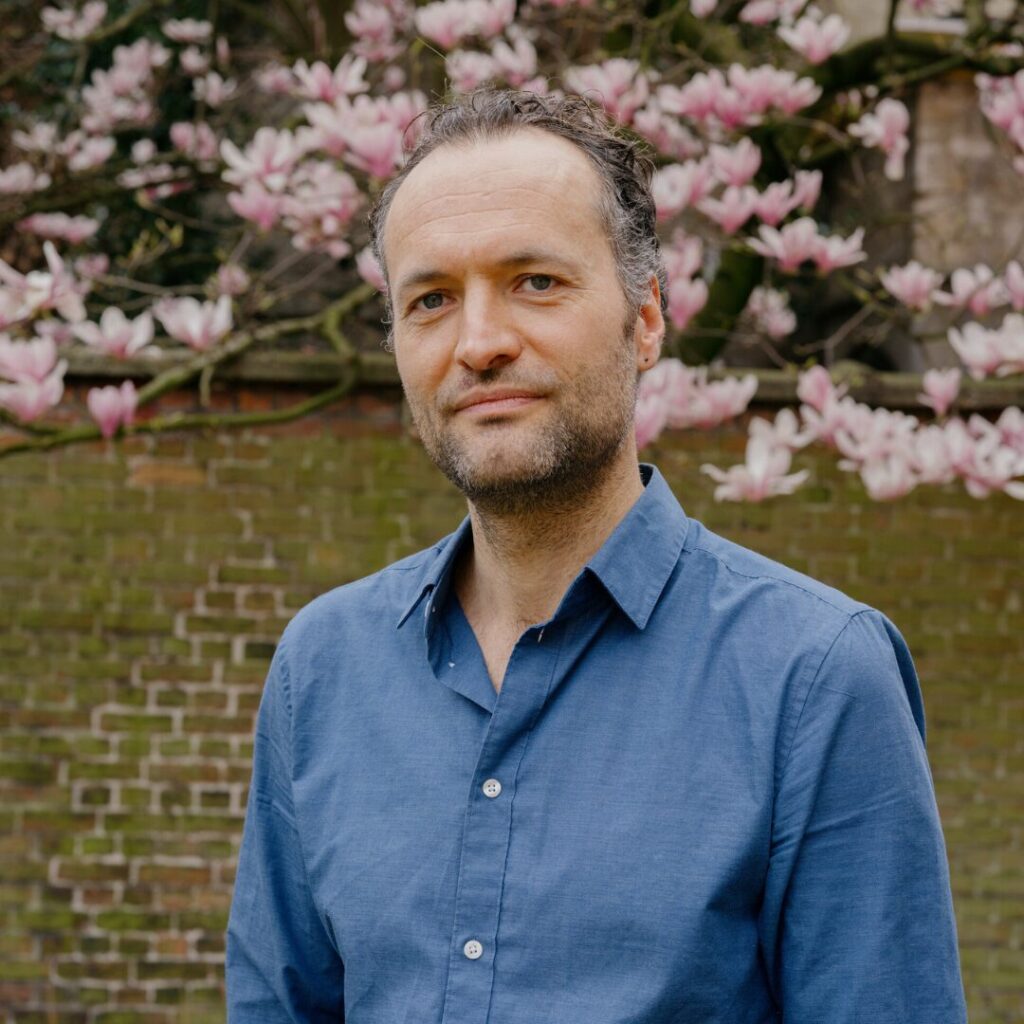
‘Academics and students need to step out of their comfort zone. That can feel uncomfortable. But discomfort is often necessary to critically review prevailing knowledge and develop a lifelong learning attitude‘
– Gert Van Hecken
Agree to disagree
Academics and students need to step out of their comfort zones, Van Hecken believes. ‘That can feel uncomfortable. But discomfort is often necessary to critically review prevailing knowledge and develop a lifelong learning attitude.’ In his classes, rather than creating a “safe” space, he aims to create a “brave space”: a place where students are challenged to think outside the usual frameworks.” As Noam Chomsky says, ‘The smart way to keep people passive and obedient is to strictly limit the spectrum of acceptable opinion but allow very lively debate within that spectrum.’ If we don’t actively challenge what we take for granted, ideas remain within safe, familiar boundaries. A brave space invites us to explore those boundaries. The clash of ideas allows us to critically examine power structures and assumptions that we often take for granted.’
Healthy debate is only possible when a university not only allows but actively encourages diversity and creates conditions within that process to question each other and the teacher. This is why Van Hecken makes prior arrangements in his classes about how to engage in constructive dialogue with each other. ‘To begin with, we have to accept that not everyone has the same history and social position. We are all in a learning process in which some are already a little further along than others. Another agreement is that sometimes you have to be able to say: let’s agree to disagree, without it being a pretext for avoiding a debate. And also important: monitor your airtime. One person is not supposed to completely take up the space. So be careful not to suppress – perhaps unintentionally – some voices.’
To encourage critical thinking, Van Hecken also dares to step away from traditional evaluation methods. Last year, for example, his students created a group work based on discussions of the views brought in by different guest lecturers. The emphasis was on debate and forming their own opinions. As a final assignment, they wrote a joint vision statement about the future of the university, coupled with creative output such as a podcast or a video. Some of that material was presented during Global Engagement Week to engage in dialogue with the rector.
‘If we don’t actively challenge what we take for granted, ideas remain within safe, familiar boundaries. A brave space invites us to explore those boundaries.’
– Gert Van Hecken
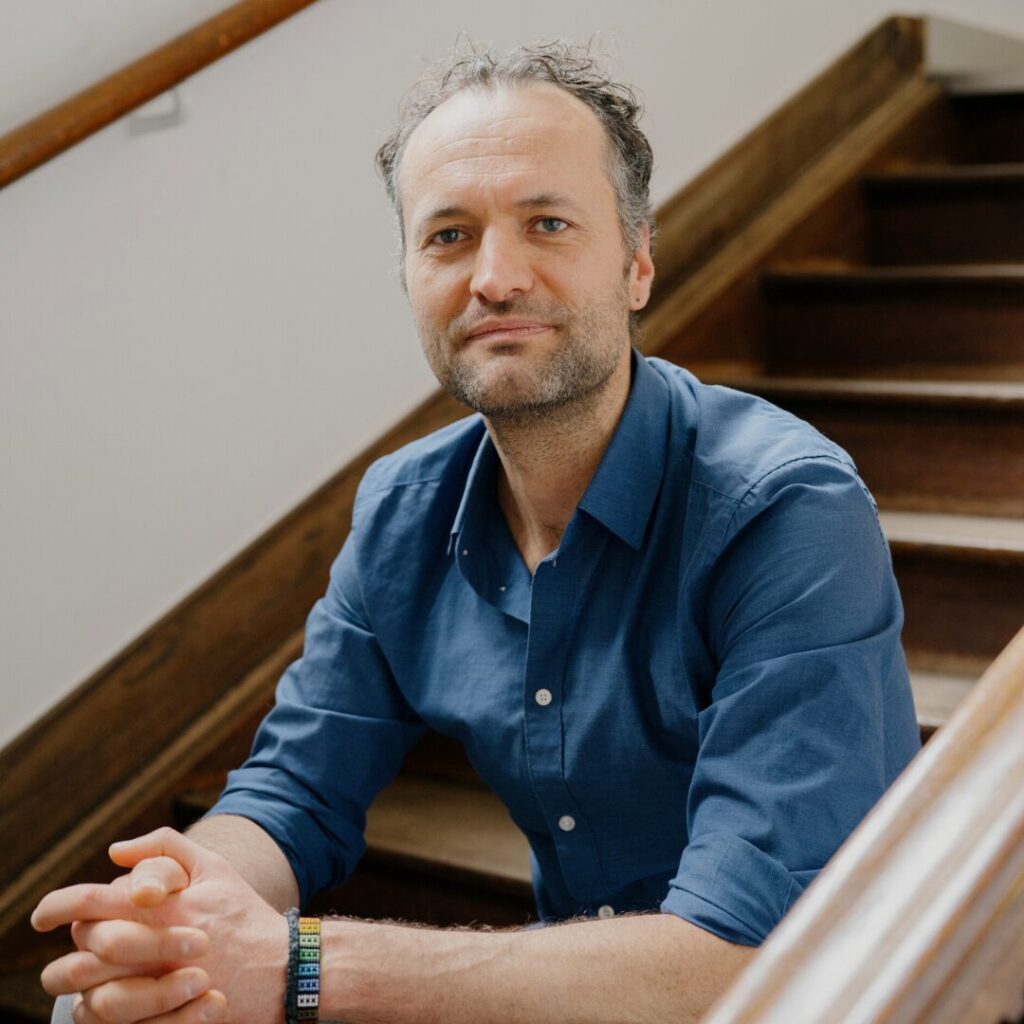
Controversial debates
Gert Van Hecken’s research projects also have an active pluralistic approach. ‘Our research group investigates themes in the Global South, but also with the Global South. We aim for long-term partnerships in which we involve our partners horizontally in the design and implementation of projects. We try to start as much as possible from their needs and their analyses. We also want to create the conditions for a critical perspective from the South to question processes in the North,’ Van Hecken explains.
And what about social engagement? To what extent should our university get involved in controversial social debates? Van Hecken has strong views on that too. Standing up and speaking out may be necessary, even if it is uncomfortable for our university. ‘As public intellectuals, we should have the courage to speak out, both individually and collectively. After all, active pluralism presupposes that we recognize that ‘neutrality’ is not always possible or even desirable. ‘If you are neutral in situations of injustice, you have chosen the side of the oppressor,’ said South African Archbishop Desmond Tutu. Moreover, in situations of unequal power relations, ‘neutrality’ too often translates into silence and indifference. As a university, we must continually ask ourselves what values we stand for. We cannot remain stuck in all-too-easy, often vague slogans about sustainability, decolonization, or social justice. We must go beyond rhetoric and act accordingly.’
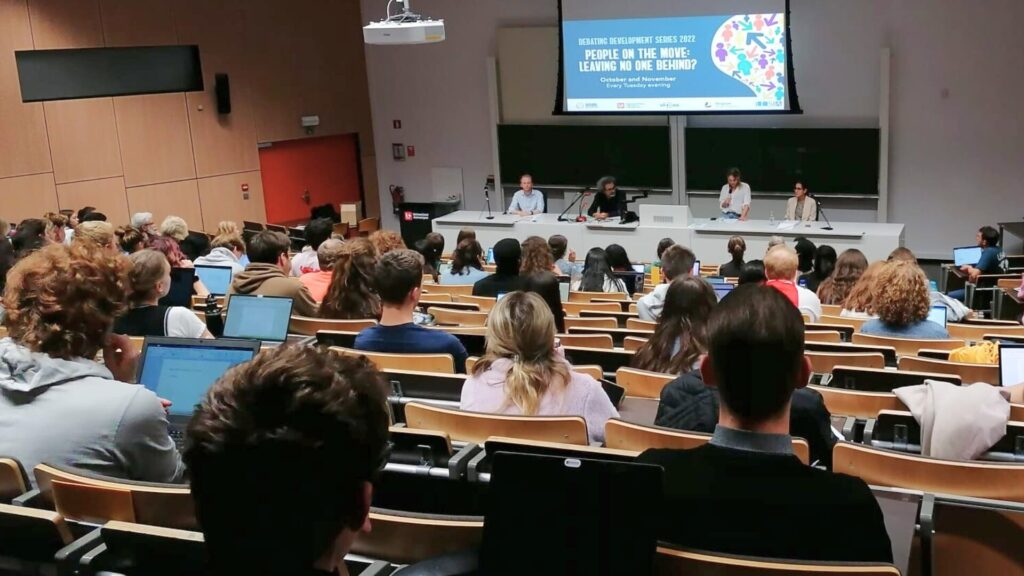
As an example, he cites the university’s stance on partnerships with Israeli universities. Gert Van Hecken: ‘As a university, we must dare to question our stance on that. Debates can play an important role in this, but without meaningful action that is not enough. If you say as a university that you find decolonization and human rights important, then you must also dare to put your money where your mouth is. And as last year’s student protest made clear, transparency, openness and inclusiveness in the decision-making process are crucial in this regard.’
Alternative thinkers
In that regard, he cautions against the growing trend toward relativism. ‘Allowing many voices to be heard does not mean that there are no limits. Issues such as racism and human rights violations, for example, are unacceptable, and we as an organization must actively take a stand on them. At that point you can’t say: well, there are different equally valid opinions. Then active pluralism risks becoming an excuse for not having to take a collective stand on any social issue.’
In terms of social engagement and the role of the university in public debate, Van Hecken sees an undeniable devolution, which he personally regrets. ‘In the 1960s and 1970s, universities were often bastions of alternative thinking and emancipation. Today, the focus is more and more on preparing students for the job market. This is troubling: a university should above all remain a place where critical questioning of society in all its facets is paramount.’
Questioning one’s own beliefs
As an IOB professor, Gert Van Hecken encounters not only a multiplicity of opinions, but also of cultures. Does that bring additional challenges? ‘Yes it does’, he believes. ‘Our students often come from very different backgrounds. That is not always obvious. How do you deal with each other? What do you do with all those different views, some of which can clash very much? Such diversity requires considerable adaptation and thought, where we as teachers and facilitators also need to question ourselves regularly.’
But, he adds, that multiplicity of cultures and visions is a great enrichment. ‘I really enjoy teaching, especially to groups of students who bring a great diversity of perspectives and life experiences to the auditorium. Every year in the process, I am encouraged to question my own views. It’s great to engage with these students each time and see them in conversation with one another. That gives a lot of satisfaction, and I also learn an awful lot from it.’
This article aligns with the line of strength “Active pluralism as a basis for dialogue”. The lines of strength are guidelines on how you can shape your work. Now it’s up to you to put the mission in motion.


